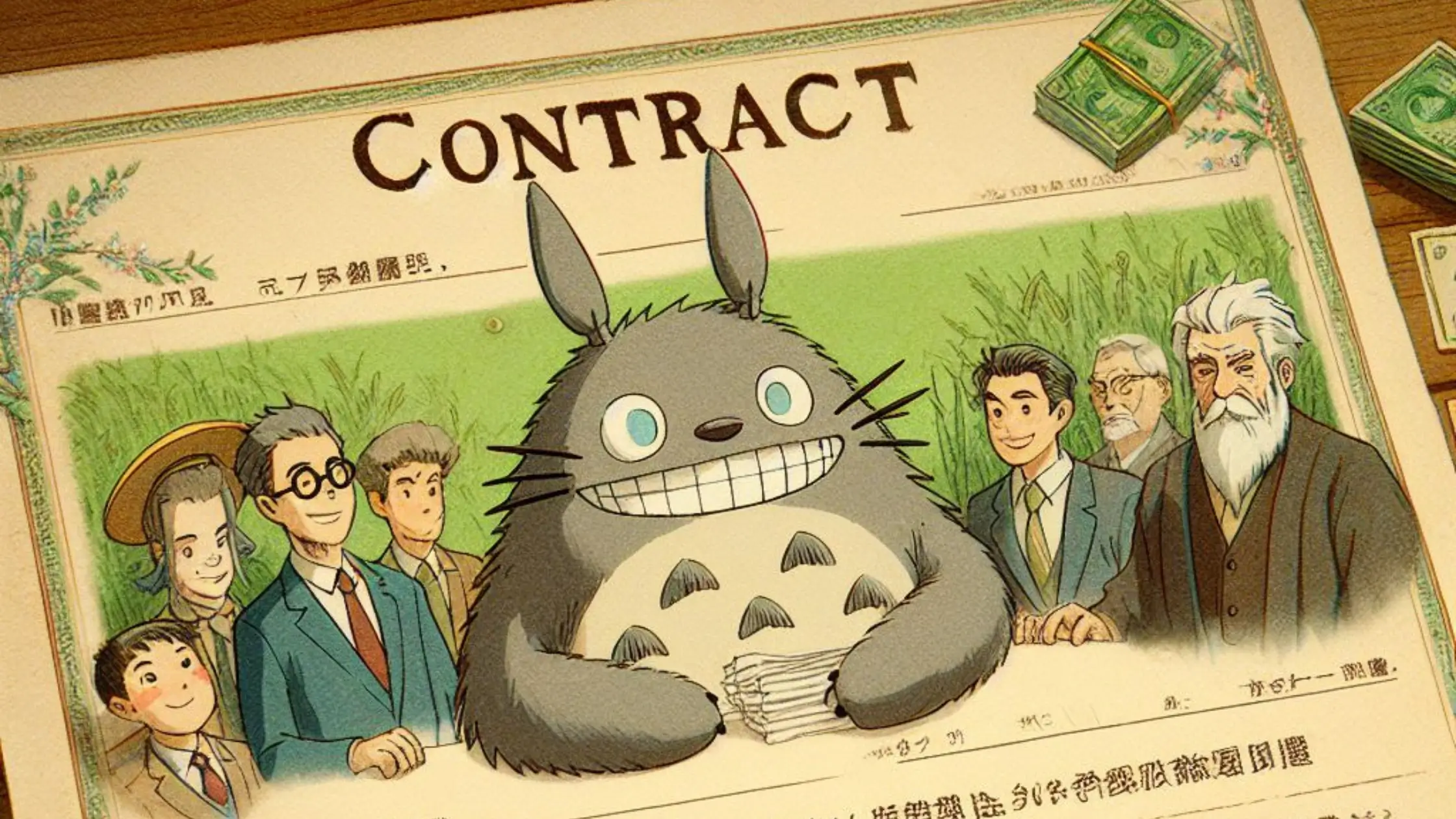
14 Dec Leasing a Beat: Everything You Need To Know
Summary
- Beat Leasing is a practice where artists pay a fee to use a producer’s beat for their own song, under certain conditions. It is cheaper and more convenient than buying exclusive rights to a beat, but it also comes with limitations and restrictions.
- The terms and conditions that define how an artist can use a leased beat, such as the number of distribution copies, the number of streams, the broadcasting rights, and the duration of the lease are usually defined in a document that is called "license agreement". Different types of leases offer different levels of benefits and costs for artists and producers.
- Some advice and information for artists and producers who want to have a successful beat leasing experience, such as understanding the lease terms, choosing a suitable beat, budgeting wisely, and finding reputable platforms and services can be found here.
Table Of Contents
The Growing Trend of Beat Leasing.
How Beat Leasing Works.
Leasing a beat vs. exclusive rights
What to consider when leasing a beat
Examples of License Agreements.
Tips for a Successful Beat Leasing Experience.
The Growing Trend of Beat Leasing
If you are an aspiring rapper or singer, you might have heard of the term “leasing beats”. This is a practice where you pay a producer a fee to use their instrumental for your own song, under certain conditions. Leasing beats is becoming more and more popular among artists who want to access high-quality beats without breaking the bank. But how does leasing beats work, and what are the pros and cons of this option? In this blog post, we will explain everything you need to know about leasing beats.
How Beat Leasing Works
Imagine you’ve made a beautiful painting, and you want to share it with the world. But instead of selling the original painting, you decide to make copies of it. This way, more people can enjoy your artwork without owning the original piece. This is similar to how beat leasing works in the music industry.
When a music producer creates a beat, they can choose to lease it instead of selling it outright. Leasing a beat means that the producer allows multiple artists to use the beat for their songs, but the producer still owns the original beat. It’s like making copies of your painting for others to use.
Now, let’s say an artist finds a beat they really like and wants to use it for their song. They can lease the beat from the producer, which means they pay a fee to use the beat for a certain amount of time or for a certain number of copies. The restrictions that artists must expect when purchasing these licenses depend on what the producer has defined in the license terms. If the artist buys a license from a reputable dealer, they usually receive a document confirming their purchase and the associated usage rights in addition to the files contained in the package.
If an artist wants to be the only one who can use the beat? In that case, they can buy the exclusive rights to the beat. This is like buying the original painting, so no one else can make copies of it.
Benefits for Artists
- Leasing a beat is much cheaper than buying it exclusively, which can save money for independent artists who are on a tight budget.
- Leasing a beat allows artists to test different styles and genres without committing to one sound or producer.
- Leasing a beat can give artists a unique and original sound that stands out from the crowd, especially if they choose a beat that is not widely used by other artists.
- Leasing a beat is easy and convenient, as artists can browse and purchase beats online from various producers and beat stores. Artists can also download the beats instantly and start working on their songs right away.
Advantages for Producers
- Leasing a beat might provide producers with an immediate income stream, especially if the beat is leased to multiple artists at the same time.
- Leasing beats might also help producers increase their visibility to other artists and help build their brand.
- Producers can offer different types of leases (Basic Lease, Premium Lease, Track Out Lease, Exclusive Rights) to cater to the needs of different artists
Leasing a beat vs. Exclusive Rights
Leasing a beat and buying exclusive rights are two ways musicians can acquire instrumental tracks (beats) to use in their songs. Here’s a breakdown of the key differences:
Leasing a Beat
- Permissions: Grants you a license to use the beat for a specific purpose, often with limitations. These can include restrictions on streams, sales, territories, or whether the use is for profit or non-profit.
- Cost: Typically cheaper than exclusive rights.
- Exclusivity: The producer can still sell the same beat to other artists unless you purchase exclusive rights.
- Control: The producer maintains ownership of the beat and sets the terms of the lease.
Exclusive Rights
- Permissions: Grants you complete control over the beat. You can use it for any purpose, without limitations (as outlined in the contract).
- Cost: Significantly more expensive than leasing.
- Exclusivity: You become the sole owner of the rights to use the beat, and the producer cannot sell it to anyone else.
- Control: You have full creative control over how you use the beat.
Which should you choose?
- Leasing: Ideal for starting artists, demos, or if you're on a budget. You can experiment with different beats without a huge investment.
- Exclusive Rights: Perfect for serious releases where you don't want your song to have the same beat as another artist's work. It offers greater creative control and potential for commercial success.
Remember: Always carefully review the contract before leasing or buying exclusive rights to a beat. This ensures you understand exactly what permissions you’re getting and any limitations involved.

what to consider when leasing a beat
As an artist venturing into the world of beat leasing, there are several key factors to consider. This next section will delve into the specifics of what an artist should be aware of when leasing a beat from a producer.
To do that, I have inserted a screenshot of the options a producer has when he or she is selling licenses with one of the most popular platforms: Beatstars. I will give you insight into every point the producer can adjust, when he’s selling his music through this trusted platform.
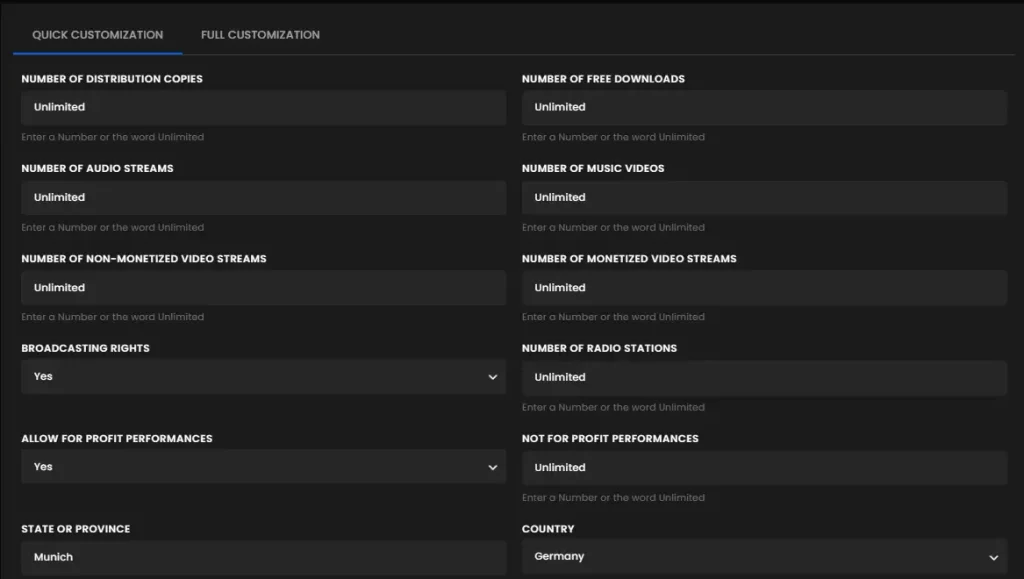
- Number of distribution copies: The number of distribution copies when leasing a beat on refers to the limit on the number of times the leased beat can be distributed in various forms, such as physical sales or downloads.
- Number of free downloads: Describes how often the buyer of the license is entitled to make the works he has created with the beat available for free download.
- Number of audio streams: Describes how often the song/creative work the purchaser of the license has created with the beat may be streamed until he must renew his license.
- Number of music videos Describes for how many music videos the beat may be used by the purchaser of the license.Describes how often the song/creative work the purchaser of the license has created with the beat may be streamed until he must renew his license.
- Number of non-monetized video streams Describes how often music videos created by the purchaser of the beat may be streamed without gaining any revenue from it until he must renew his license..
- Number of monetized video streams: Describes how often music videos created by the purchaser of the beat may be streamed with gaining revenue from it until he must renew his license.
- Broadcasting rights: Broadcasting rights refer to the permission to use the song/creative work created with the beat in public performances, radio, or online streaming platforms.
- Number of radio stations: Defines on how many radio stations the the song/creative work the purchaser of the license has created with the beat can be streamed, until he has to renew his license.
- Allow for profit performances: Defines if the purchaser of the license is allowed to make a profit with the song/creative work created with the help of the beat by using it for live performances.
- Not for profit performances: Defines if the purchaser of the license is allowed to use the song/creative work created with the help of the beat for performing live without gaining any revenue from it.
- State or province/Country: Describes arbitration (State or Province and Country) where Governing Law is applied.
Examples of License Agreements
Despite its growing popularity, beat leasing is not without its misconceptions. Some artists fear a loss of creative control, while producers may worry about the overuse of their beats. Addressing these concerns is crucial to fostering a healthy and transparent relationship between artists and producers.
MP3 Lease
- MP3 file, untagged
- Sell unlimited Units
- Unlimited Audio Streams
8.99 $
Buy 3, Get 1 Free
WAV Lease
- WAV file, untagged
- Sell unlimited Units
- Unlimited Audio Streams
19.99 $
Buy 3, Get 1 Free
STEMS LEASE
- MP3 & WAV file, untagged
- Stems of all instruments
- Sell unlimited Units
- Unlimited Audio Streams
59.99 $
Buy 3, Get 1 Free
Tips for a Successful Beat Leasing Experience
- Before leasing a beat, make sure you fully understand the terms of the lease. This includes the number of distribution copies, the number of free downloads, and any other restrictions or permissions.
- Choose a beat that fits your style and the mood of the song you want to create. Listen to a variety of beats before making your decision.
- Leasing beats can be a cost-effective way to get high-quality production for your music. However, it’s important to budget wisely and make sure you’re getting a good deal. We often offer bulk deals, or exclusive discounts to make producing high quality music even more affordable.
- https://blog.beatstars.com/posts/selling-vs-leasing-exclusive-beats-right-way
- https://djbooth.net/features/2018-09-13-beat-lease-agreements-six-things
- https://beatmakerlab.com/articles/beat-leases-explained/
- https://bostlegalgroup.com/5-things-to-consider-before-you-sell-or-lease-a-beat-online/
- https://musconv.com/does-beatstars-copyright-your-music/

Author: Trashbbx
Trashbbx is a beatboxer, beatmaker & music producer based in Munich Germany. Throughout his career as a musician, he has gained a lot of experience working in the music industry.



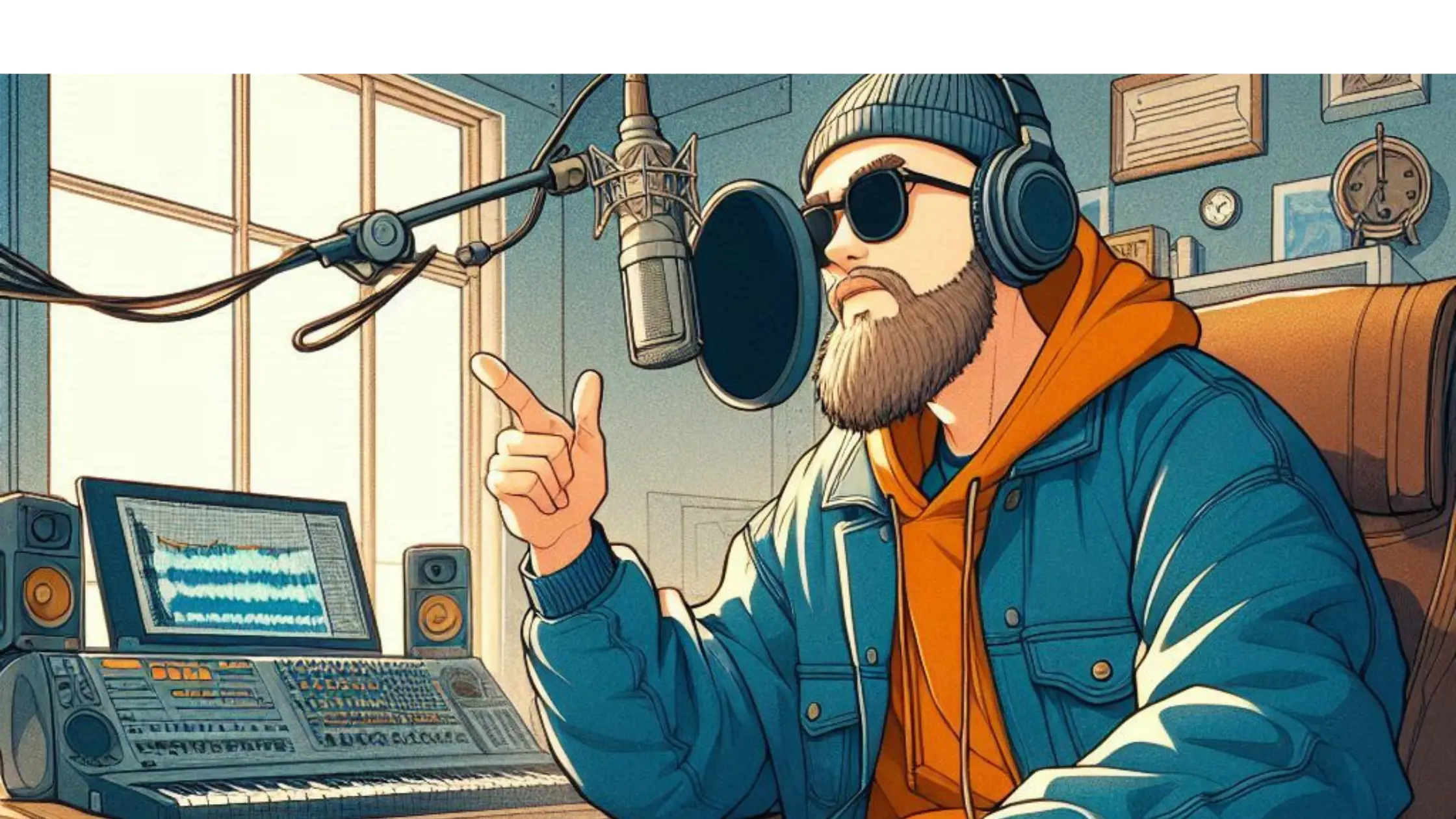
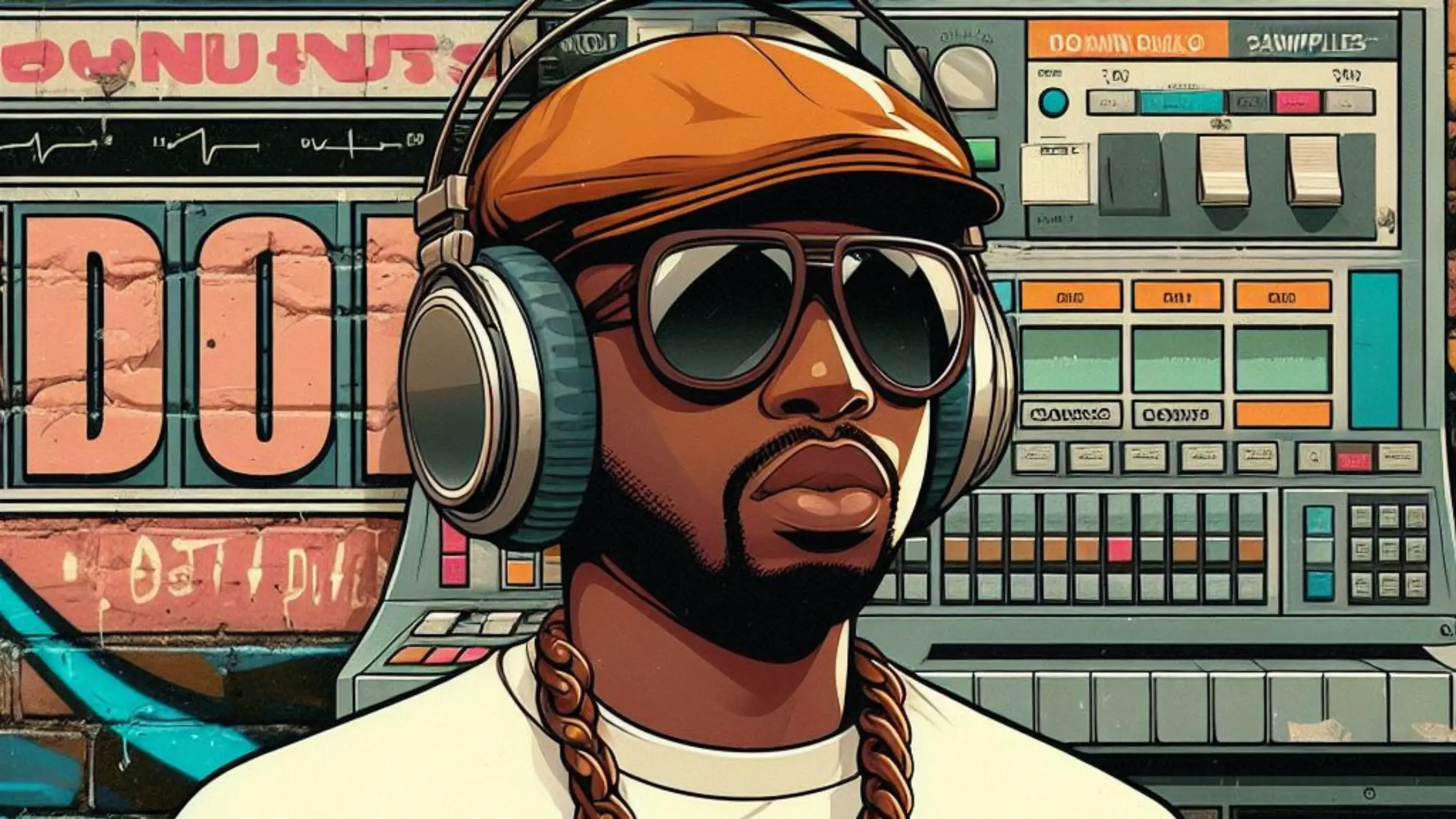
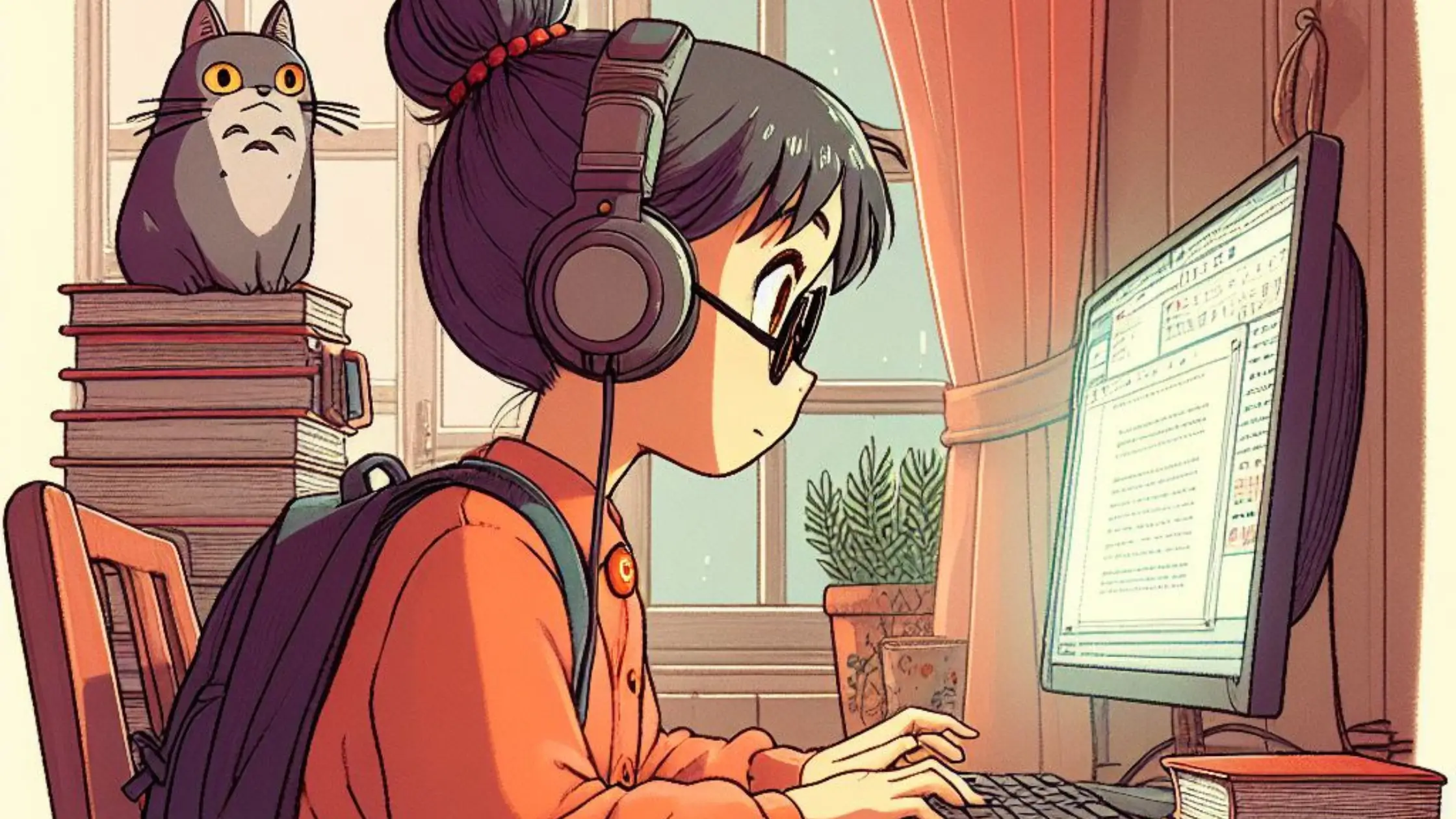
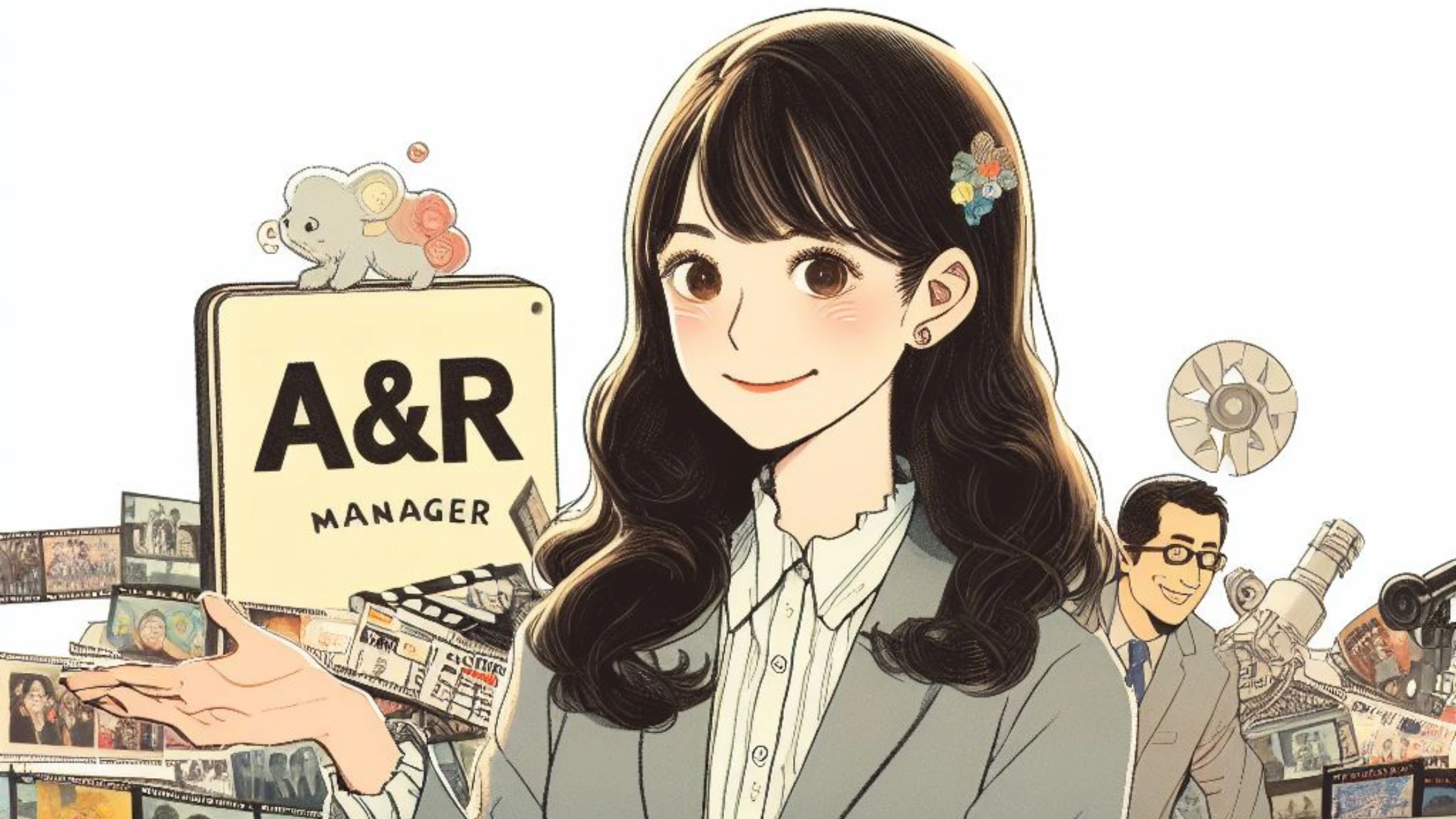
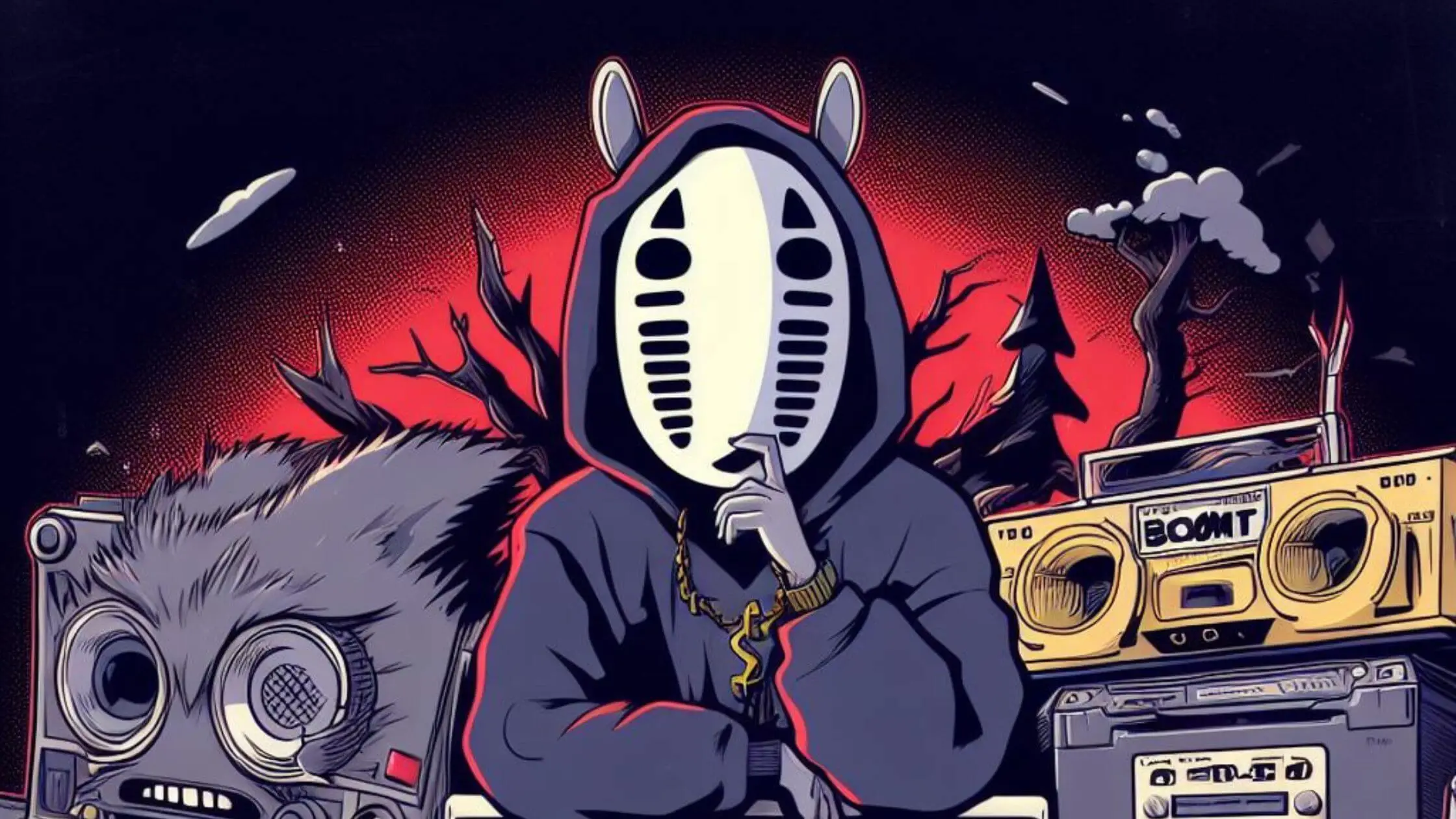
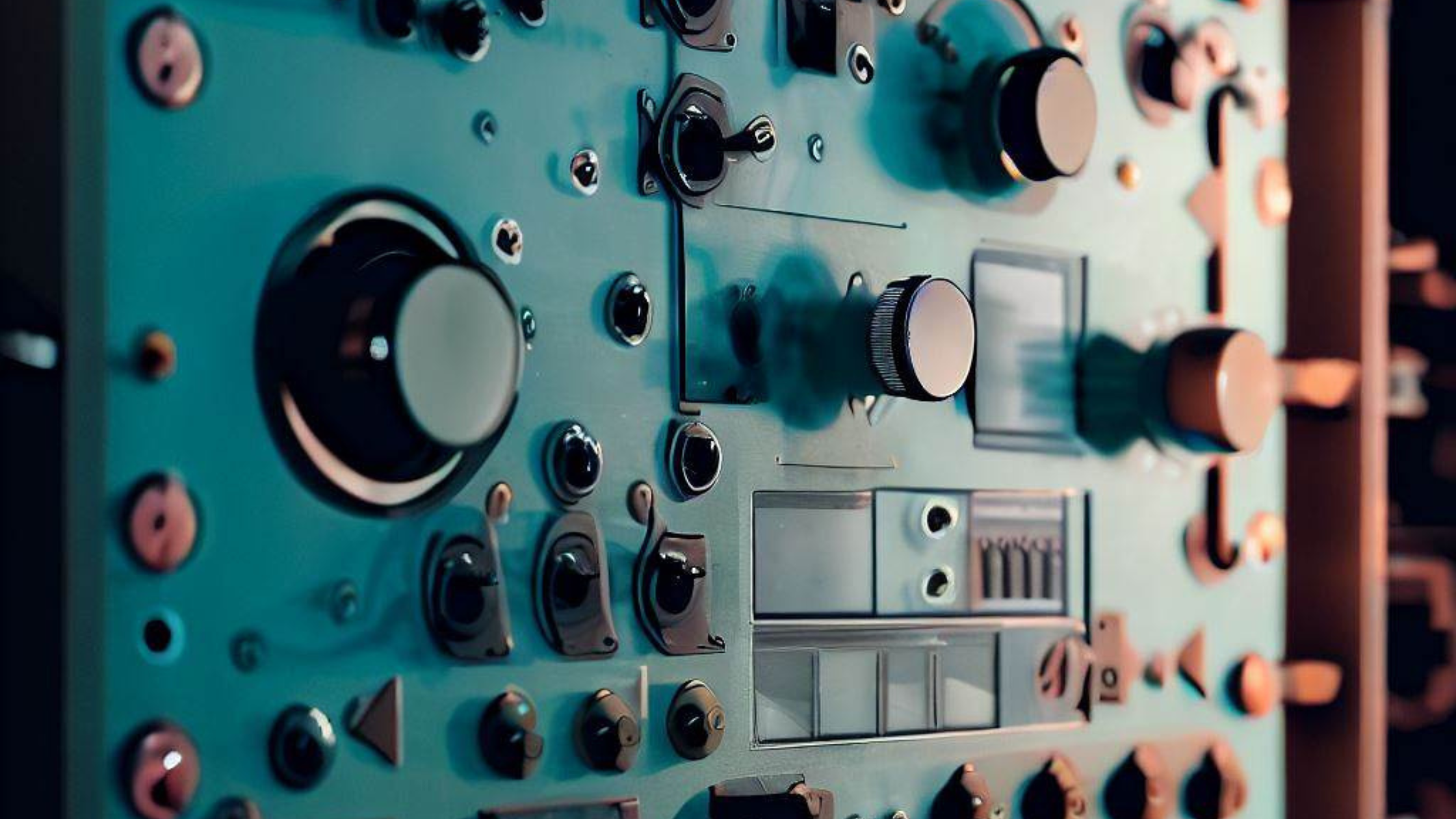

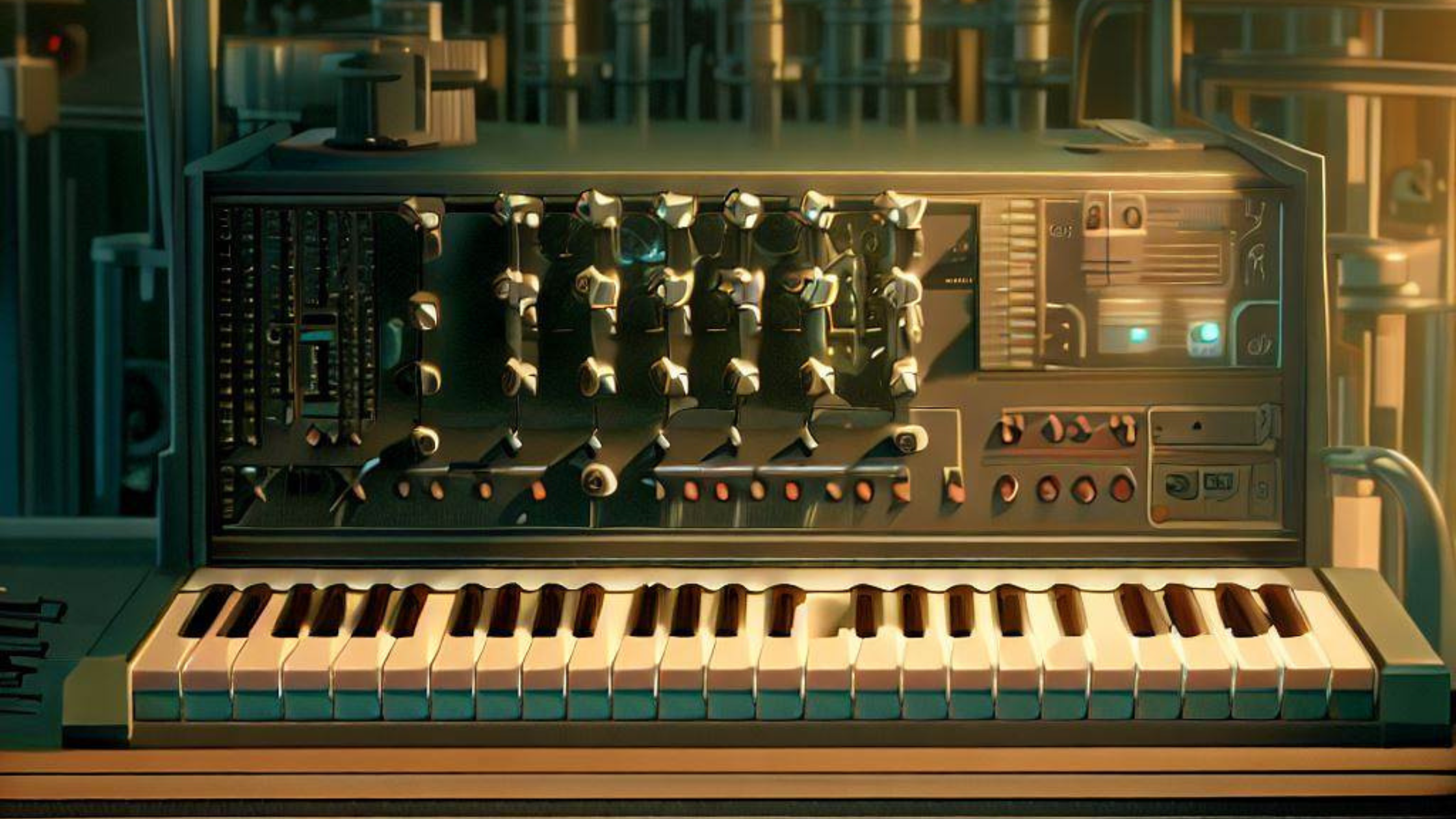
Sorry, the comment form is closed at this time.